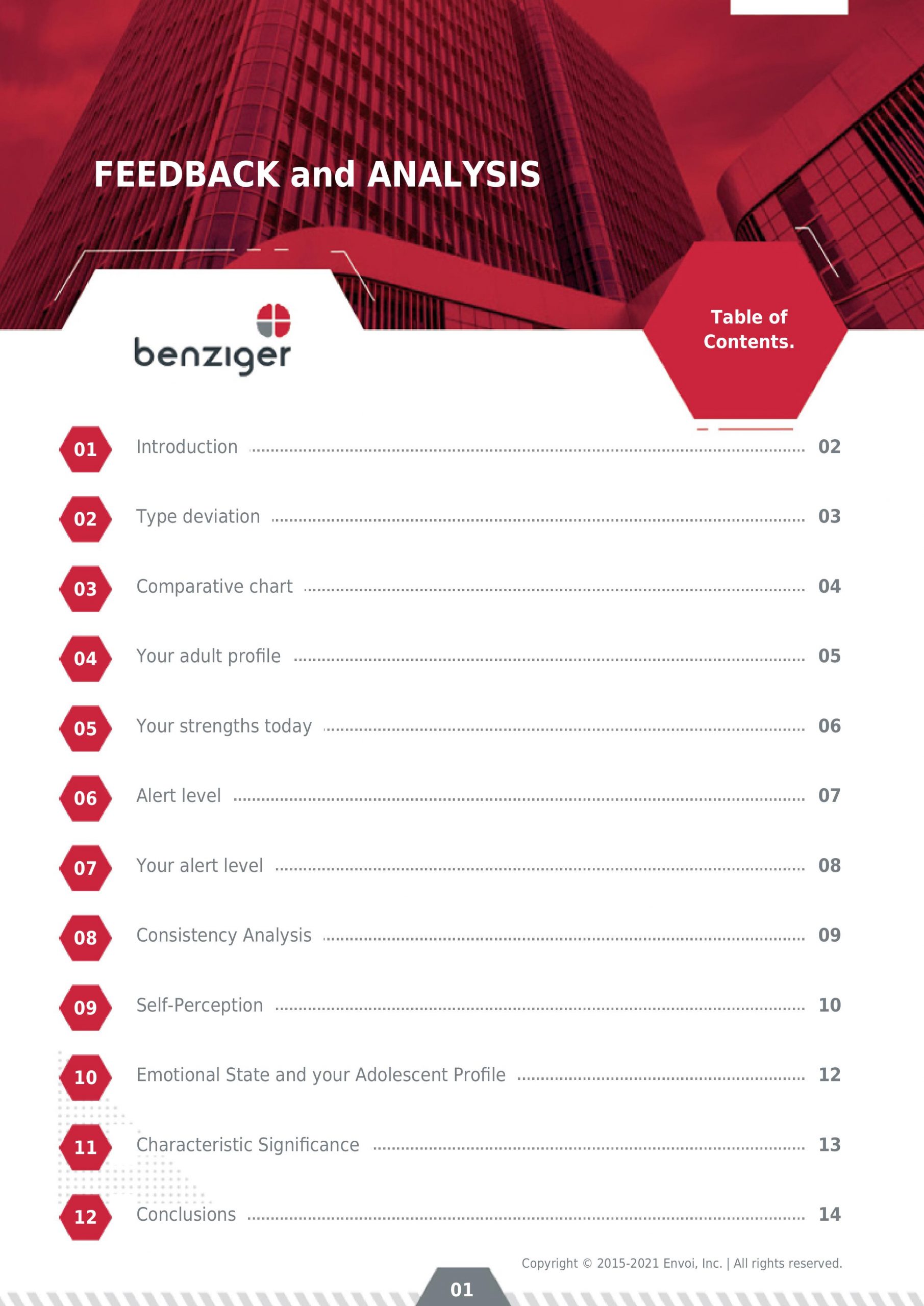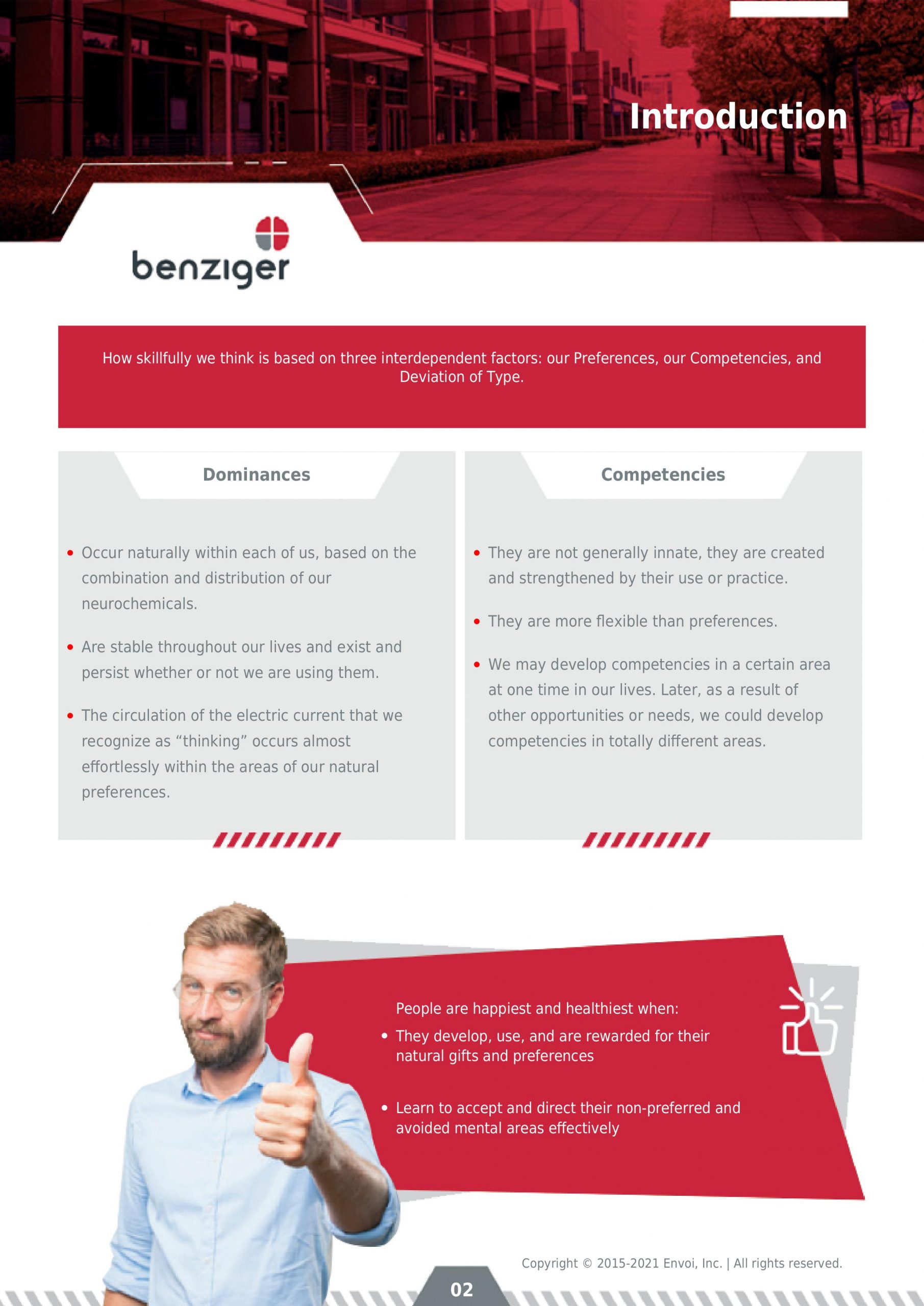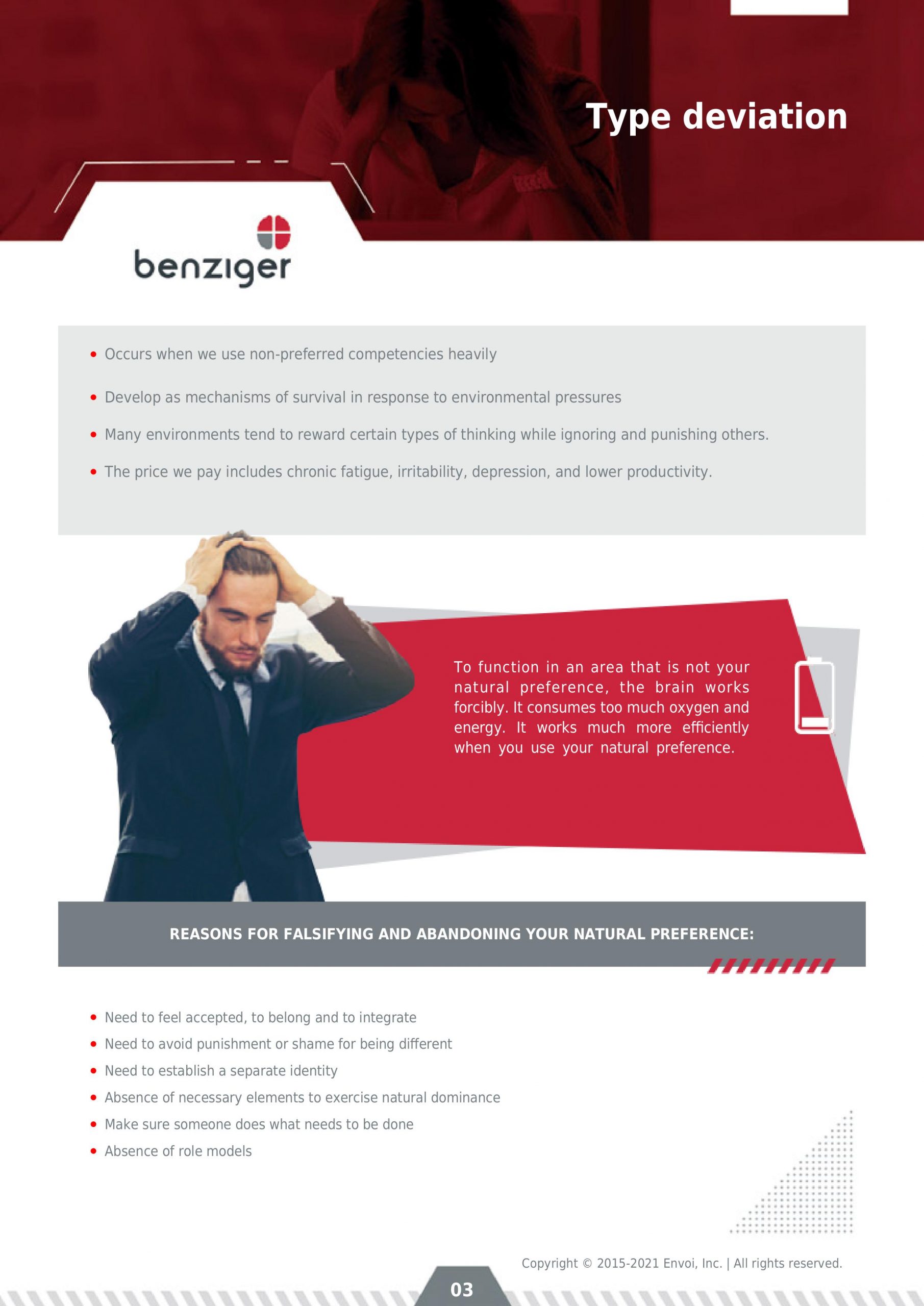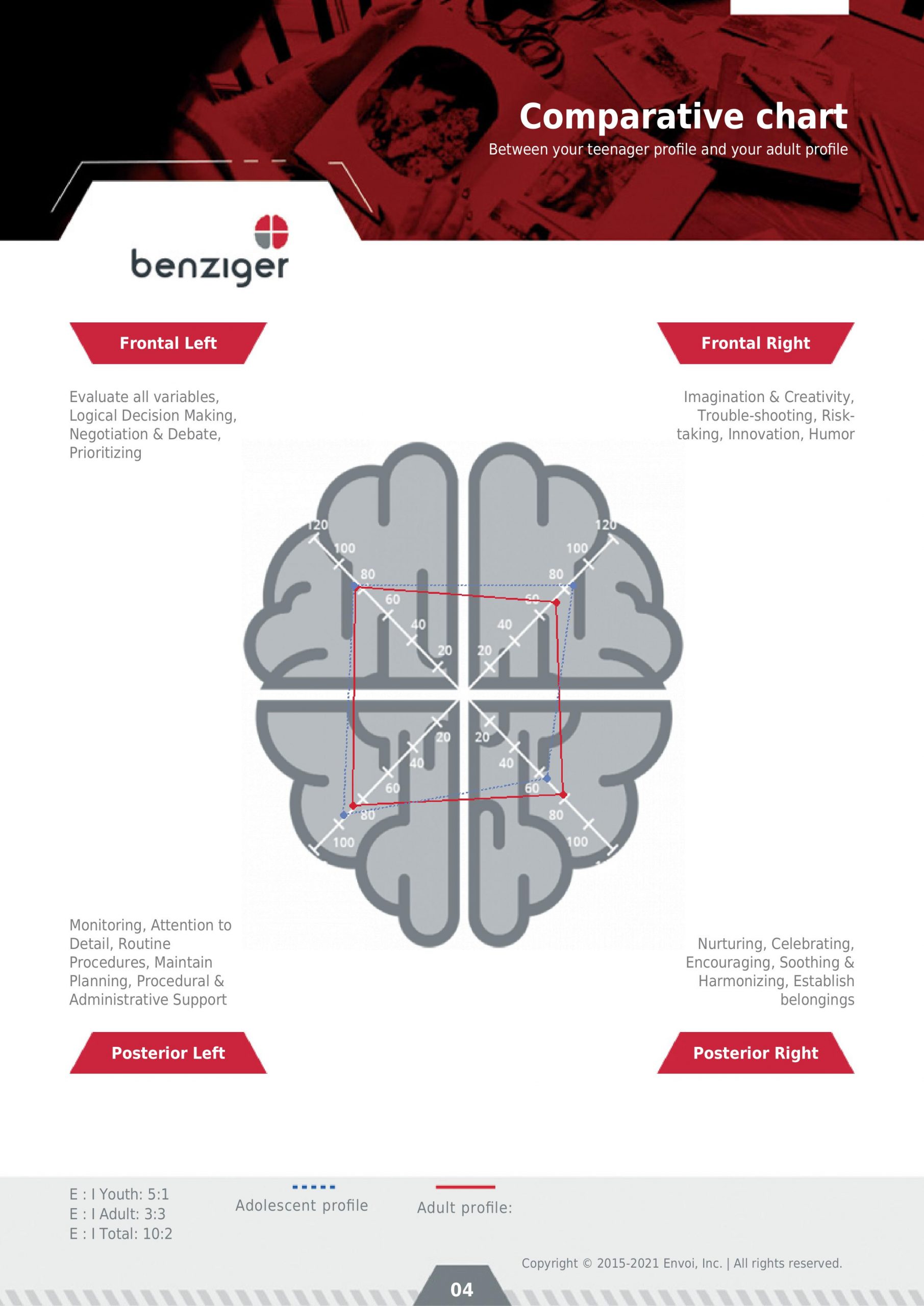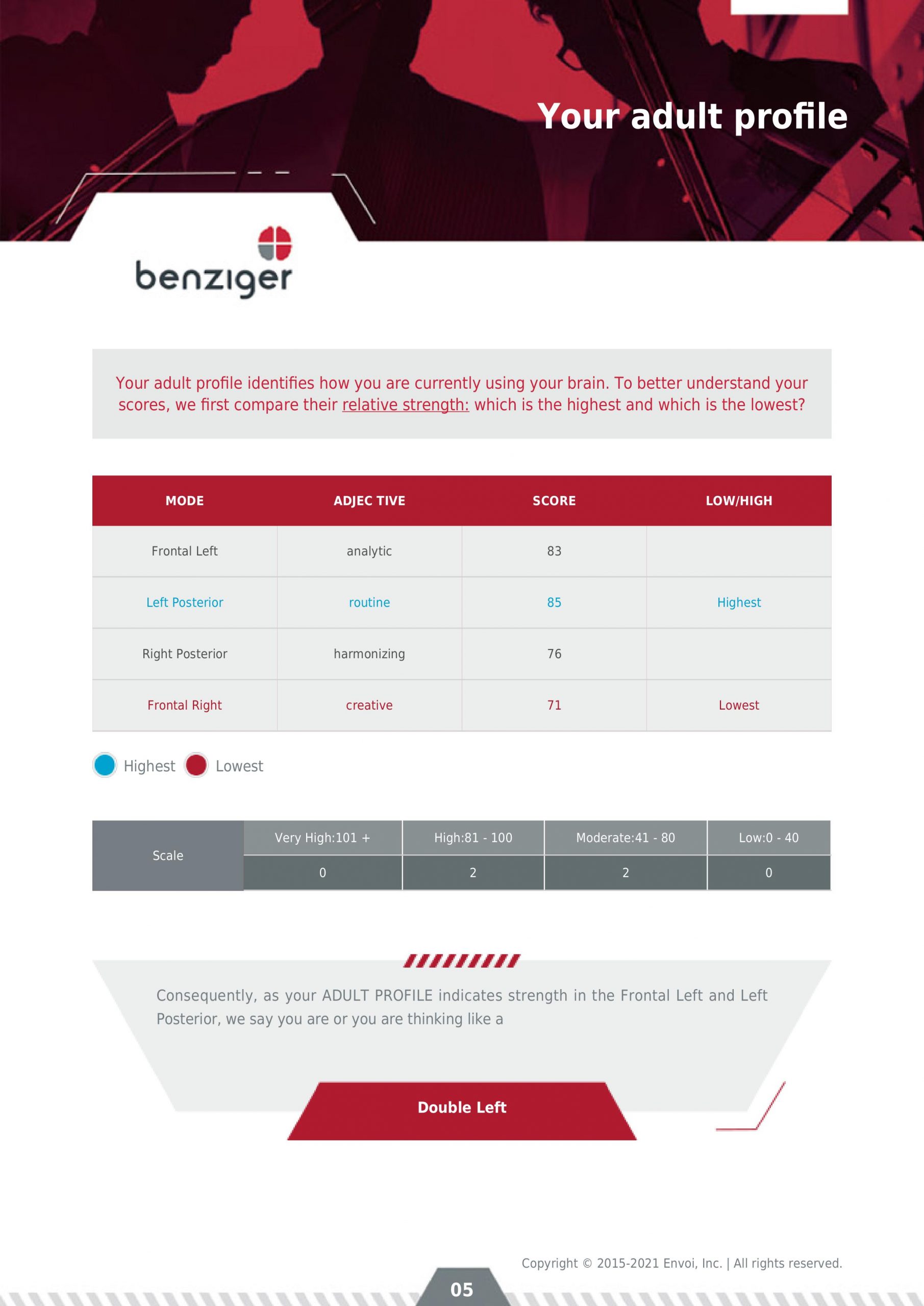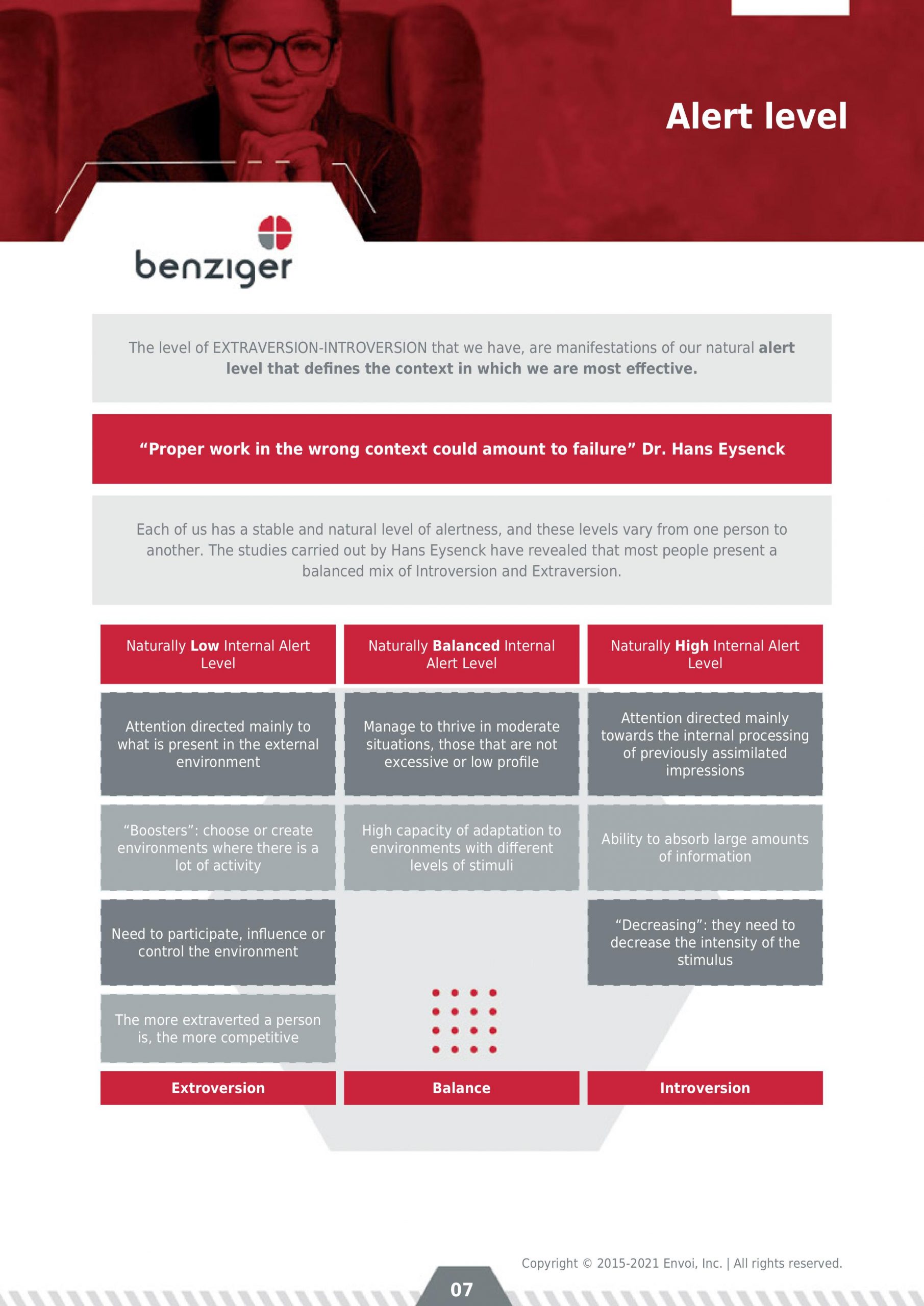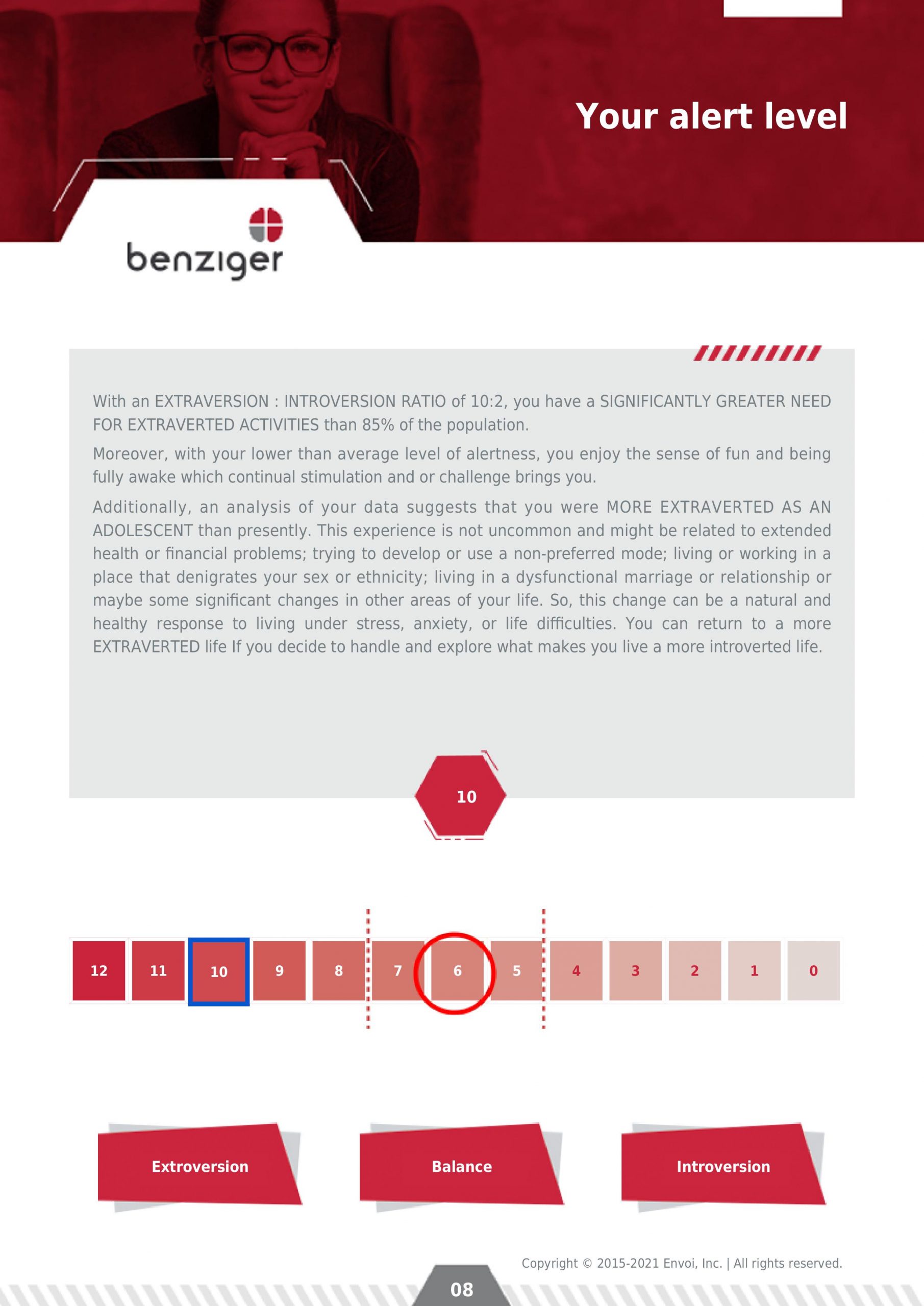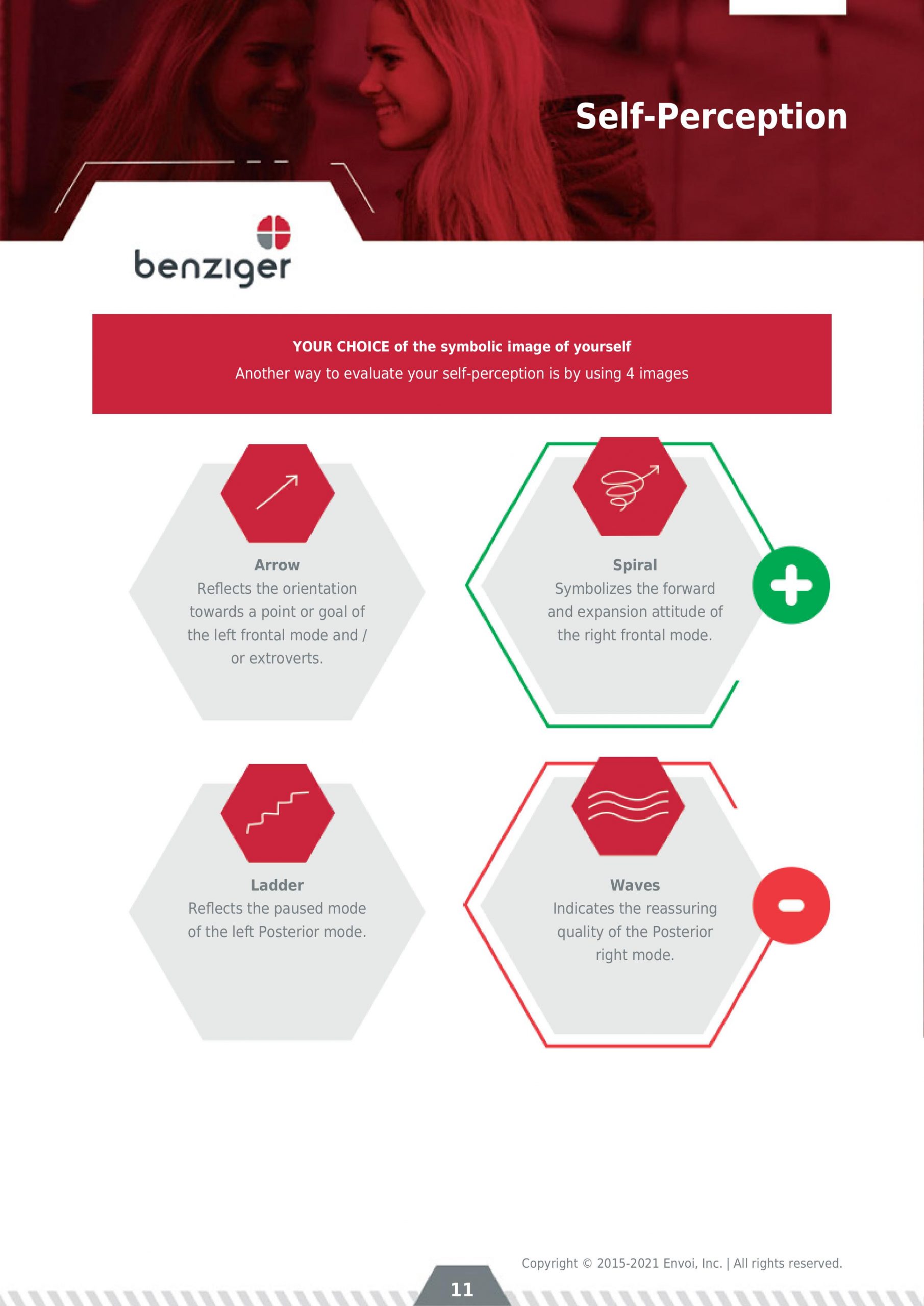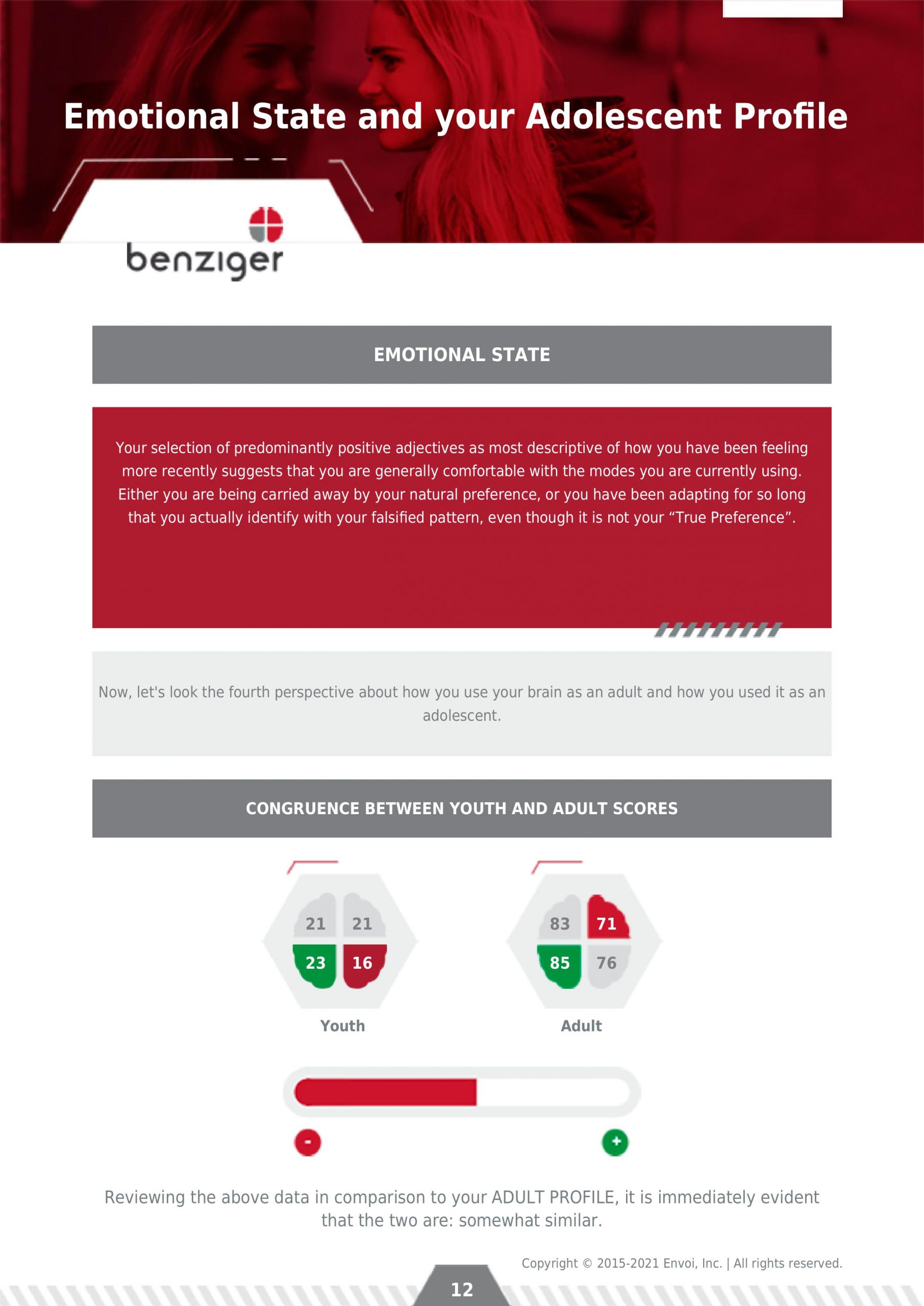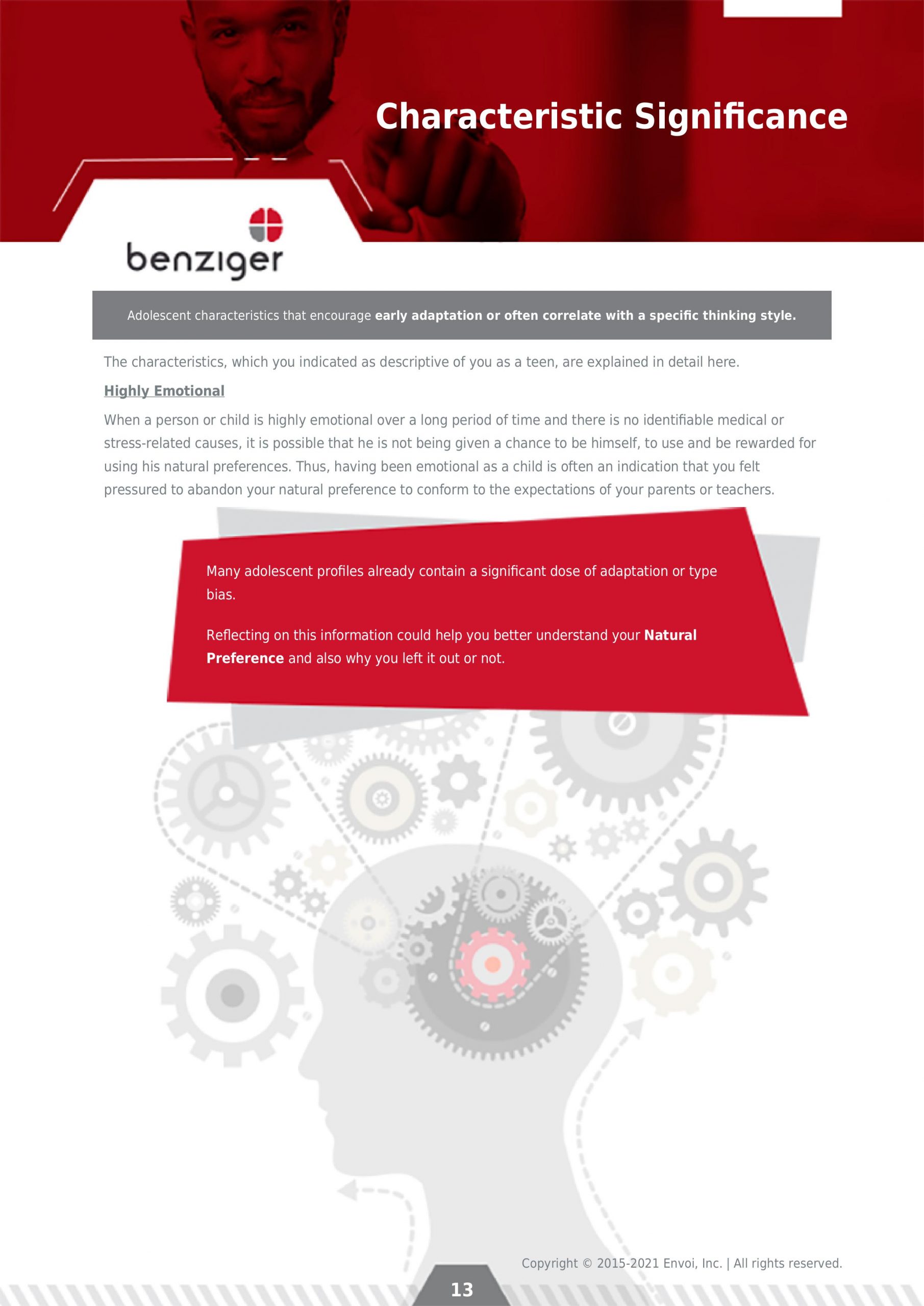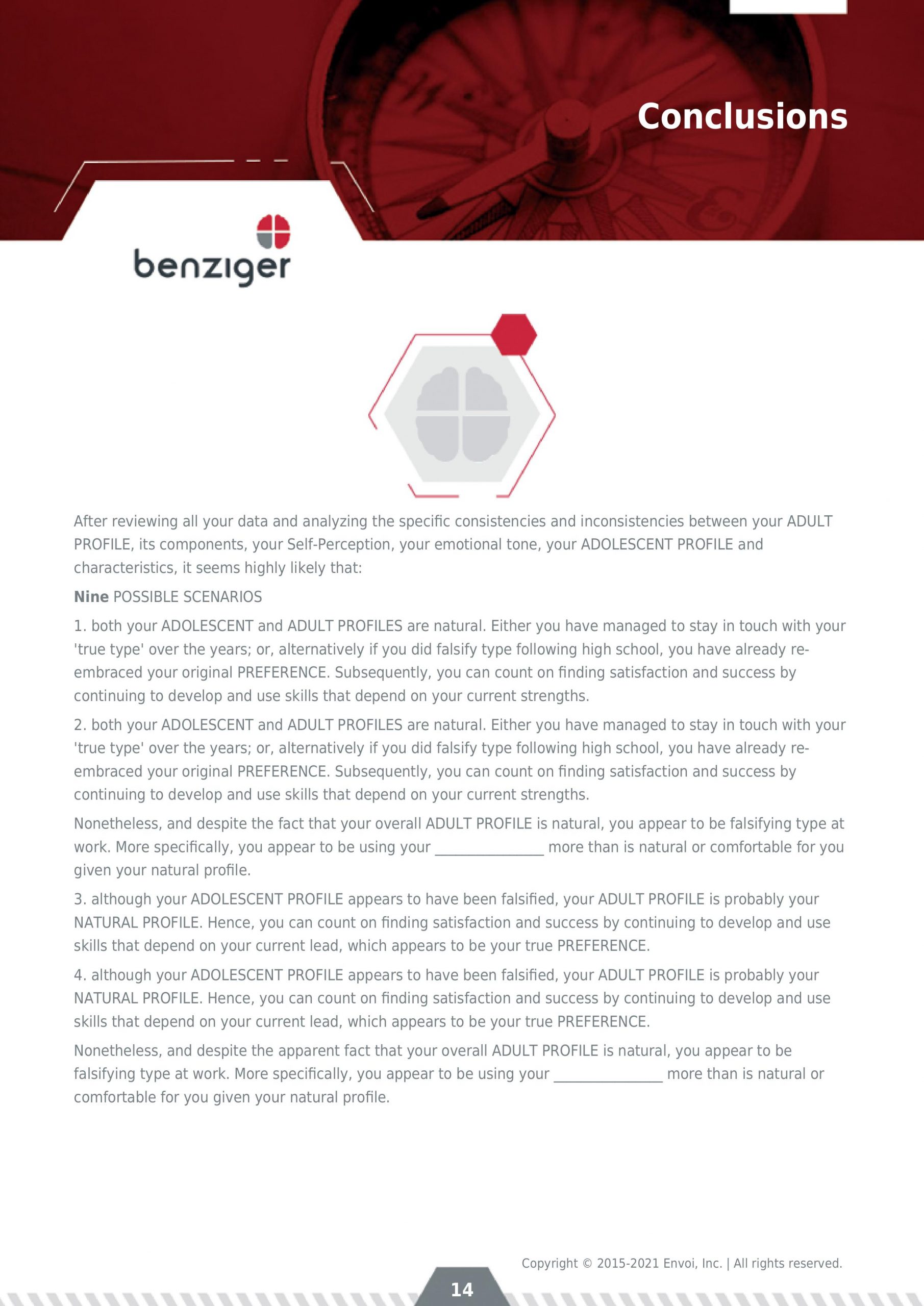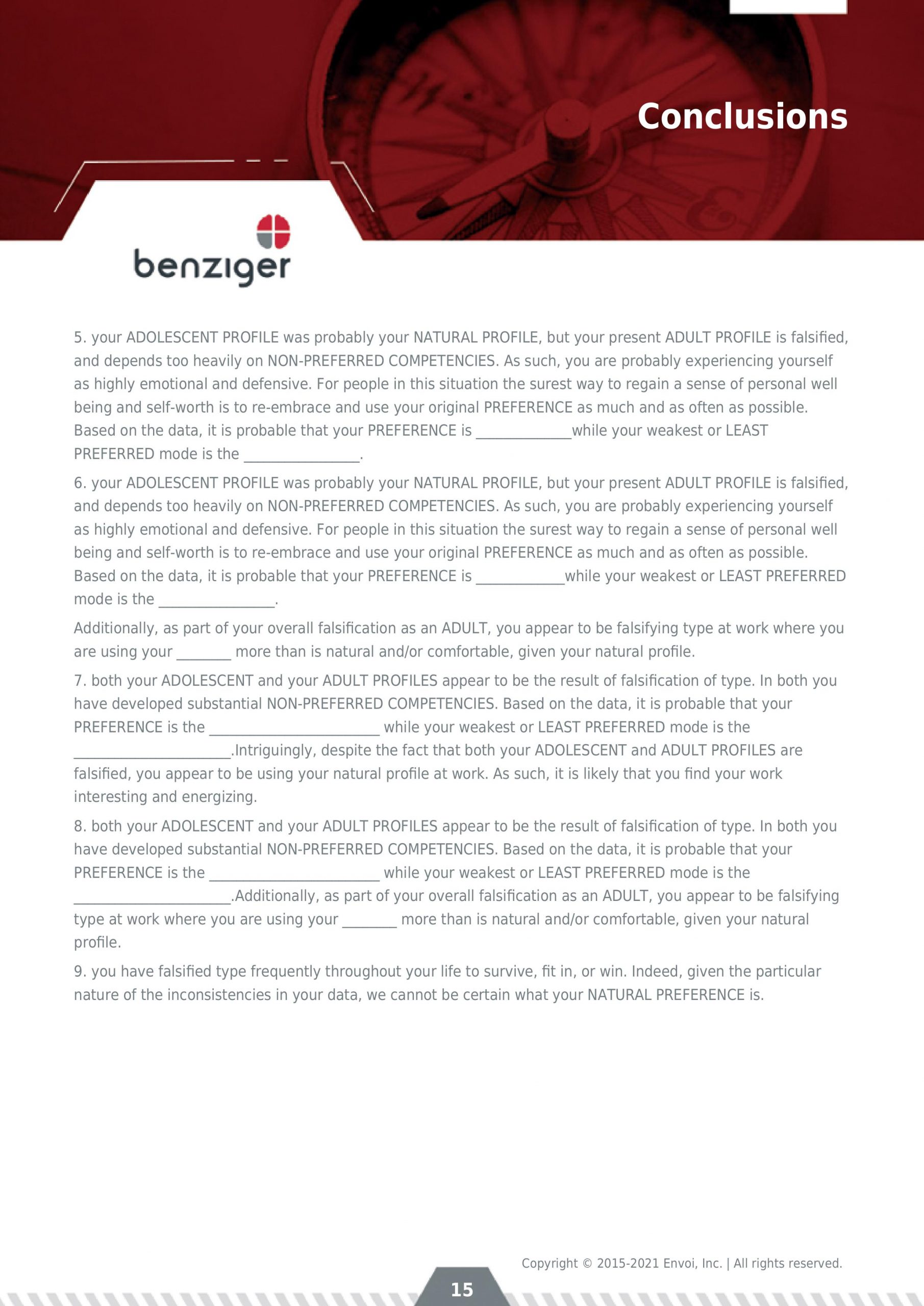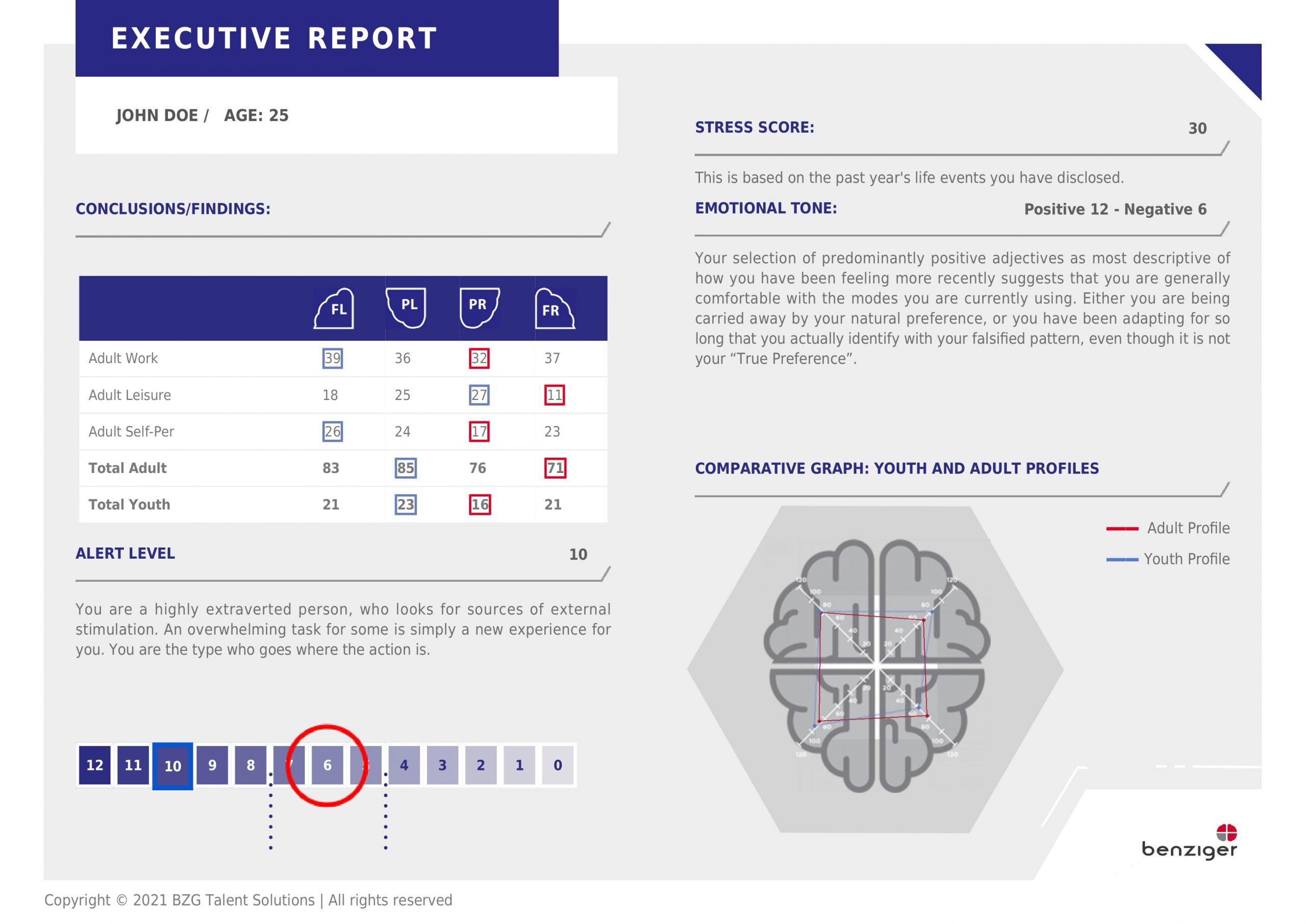WANT MORE INFORMATION? CONTACT US NOW
WANT MORE INFORMATION? CONTACT US NOW
Our Objective
Thinking Styles Assessment Benziger
75% of people have an incorrect perception of their natural strengths. Everyone has certain natural talents that if utilized, can increase the ease of mental performance.
Neuroscience has shown how individuals tend to be most effective and successful when they are valued for the use of their natural abilities.
The model is based on the theories of Dr. Carl Gustav Jung, and is designed to help people feel more complete, to improve their effectiveness, collaborative skills, and general well-being- through a better understanding of their own strengths.
Using and focusing on the wrong energies requires much greater effort and complicates the path that leads to satisfaction and fulfillment.
The Benziger Thinking Styles Assessment report shows the natural preferences of the individual, and the way in which these have been adapted or diverted in response to the demands of the environment.
Who benefits from utilizing the evaluation?
Team Leaders
The Model offers supervisors a format to better understand workers’ concerns such as perception, motivation, and job satisfaction, as well as a way of effectively addressing team issues, such as achieving goals, cohesion and leadership.
Workers
Benziger Thinking Styles Assessment can also help people who find themselves feeling “disoriented” and feel a need to “reinvent” themselves- relying on those strengths that make them unique.
From 21 to Retirement
People who have resigned themselves to do what the environment imposes on them, instead of feeling mobilized or attracted to their true purpose, and who need to discover their true strengths.
Advantages of BTSA
How does the Benziger Thinking Styles Assessment (BTSA) differ
from other thinking styles tests?
The 4 types of thinking
The cortex of the human brain has 4 quadrants, and the dominance of a quadrant determines a type of specialized thinking, with its unique and exclusive way of perceiving the world and processing information. Every person has one of these quadrants as dominant, a type of dominant thinking, which is naturally more efficient.
Detecting which is the individual’s dominant type of thinking serves to increase their productivity in the fields where it is naturally more efficient to utilize it.
What is the falsification
of type?
A person’s natural thinking style can be eclipsed or invalidated by the pressures of the circumstances they live in. ‘Falsification of type’, is the term coined by Dr. Carl Jung to describe any situation in which an individual has ignored or denied their type or natural preference with persistence- in favor of a modeled way of being that is more acceptable and rewarded within the person’s environment. For Jung, this type was defined by the way an individual naturally sees the world and processes information
Going a step further, the work of Dr. Katherine Benziger on the psychological and physiological bases of the Deviation of Types provides scientific support to the observations and positions of Dr. Jung.
By developing under a style of thinking that is not your natural way, you are forcing your brain to overload, to burn much more energy for hours and hours, day after day. Leading to burnout, strain, stress, and a lack of well-being.
75% OF PEOPLE HAVE AN INCORRECT PERCEPTION OF THEIR NATURAL STRENGTHS. Do you?
Cost of type Deviation
Increased irritability.
Migraines
Difficulty in mastering new tasks
Exhaustion
Homeostatic imbalance
Premature aging of the brain
Vulnerability to diseases
Self Rejection
Anxiety
Neurosis


